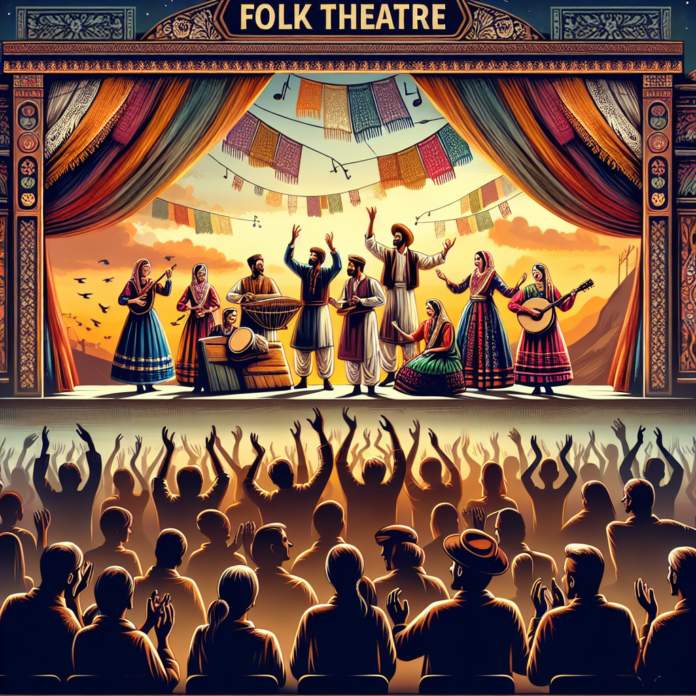Since centuries, Indian culture has been dominated by folk theatre, an ancient form of performing art. These authentic performances reflect the culture and heritage of the area they are from. This type of theatre is more than just entertainment. It’s a way to pass down stories, myths and legends from generation to generation.
Folk theatre in India is called different things in different parts of the country. For example, in Maharashtra it’s “Tamasha”, in Assam “Bhaona”, in Tamil Nadu “Therukoothu”, and in Karnataka “Yakshagana”. Each form is unique in its style, costumes and music. They all reflect the vibrancy and diversity that Indian culture has to offer.
These performances often take place on village squares or in temple courtyards. They allow the audience to become immersed in the stories being told. The actors are usually community members who bring to life characters in mythology, folklore or historical events. They captivate the audience with vibrant costumes and melodious singing.
Folk theatre uses traditional dance and music to enhance its storytelling. In folk theatre, the actors sing and dance to enhance the storytelling. They add depth and emotion to their performances. Colorful costumes, elaborate make-up, and props enhance the visual appeal, transporting audiences to another time and place.
Folk theatre can be used as a medium for social commentary. Issues such as caste-based discrimination, gender inequality and environmental conservation are addressed. The actors use their performances to raise awareness of these issues and encourage the audience members to reflect on their beliefs and values.
Folk theatre is not only a way to preserve cultural traditions but also a source of income for the many artists and performers involved in making costumes, props and musical instruments. Many rural residents find employment in this form of theatre, which contributes to the economic growth of these areas.
Studying folk theatre from an UPSC perspective is essential for understanding cultural diversity in India. In the Art and Culture section, you can ask questions about the evolution and impact of the folk theatre. Folk theatre also reflects social, political and economic realities at the time. This makes it relevant to students preparing for General Studies.
In conclusion, Indian folk theatre is an authentic performing art that captures Indian culture and tradition. These performances preserve and promote Indian cultural heritage while providing a stage for social commentary and artistic representation. Anyone who wants to learn about Indian culture must study folk theatre. This is why it’s an important topic on the UPSC syllabus.
